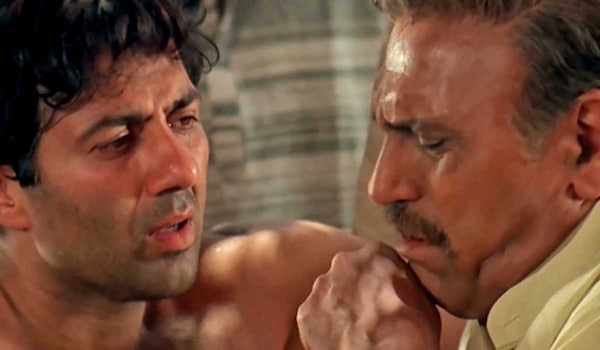Sunny Deol’s iconic action film Ghatak returns to cinemas after 28 years
Sunny Deol's Ghatak re-releases in theatres on March 21. The 1996 action hit, directed by Rajkumar Santoshi, starred Amrish Puri, Danny Denzongpa, and Meenakshi Seshadri, becoming a cult classic.

Last Updated: 09.58 AM, Mar 18, 2025
March 21, 2025, will see the re-release of Sunny Deol's Ghatak in cinemas. The announcement was made public on Monday via the Red Lorry Film Festival's official Instagram page.
Ghatak re-release announcement
It said to get ready for the comeback of a beloved classic! The Red Lorry Film Festival will showcase Ghatak on a large screen for the second time. Experience it all again on March 21, 2025, in theatres!
Legacy of Ghatak
The legendary action flick Ghatak, headlined by Sunny and released on Diwali in 1996, turned 28 years old last year. Thanks to its riveting plot, strong acting, and unforgettable lines of language, the action film is still a favourite among moviegoers.
The actor commemorated the event by posting a throwback video on Instagram that included all of his favourite lines and sequences from the film. Sunny paused to pay tribute to the late, outstanding Amrish Puri, who portrayed his onscreen father. The lovable character, played by him, was a standout feature of Ghatak.
Subtitled "28 years of 'Ghatak'!" Sunny captioned the video that it was his 1996 Diwali release! The actor misses Amrish Puri.
Key cast and director
Danny Denzongpa and Meenakshi Seshadri were also major actors in the film, which was directed by Rajkumar Santoshi. Ghatak was a smashing success upon its 1996 release, and Sunny's cutting lines are still spoken about today.
In the film, a vicious mobster named Katya (Danny Denzongpa) has taken over a town outside of Mumbai, India. Kashi (Sunny Deol), who has brought his ailing father to town in quest of medical treatment, challenges Katya after the latter brutally put down any rebellion attempts, including killing one man who openly opposed him. Kashi approaches the perpetrator during the village's uprising, but he and his father are unprepared for the reaction.
Box office success
Ghatak became the highest-grossing Bollywood film of that year, earning 32 crore in India, net at the domestic box office. It was also the second-highest-grossing film of all time, in terms of international collection.
A cult following developed around the film's lines of speech. The premise of this film is based on the original Japanese film Seven Samurai (1954) and its American adaptation, The Magnificent Seven (1960). In his subsequent, similarly successful film, China Gate (1998), Santoshi recycled the same storyline.

